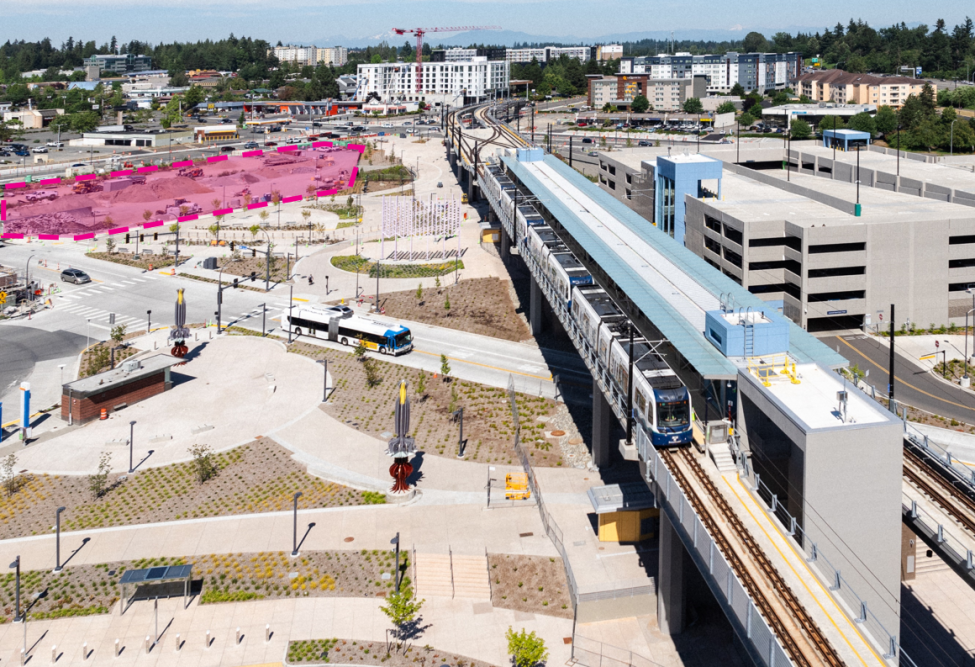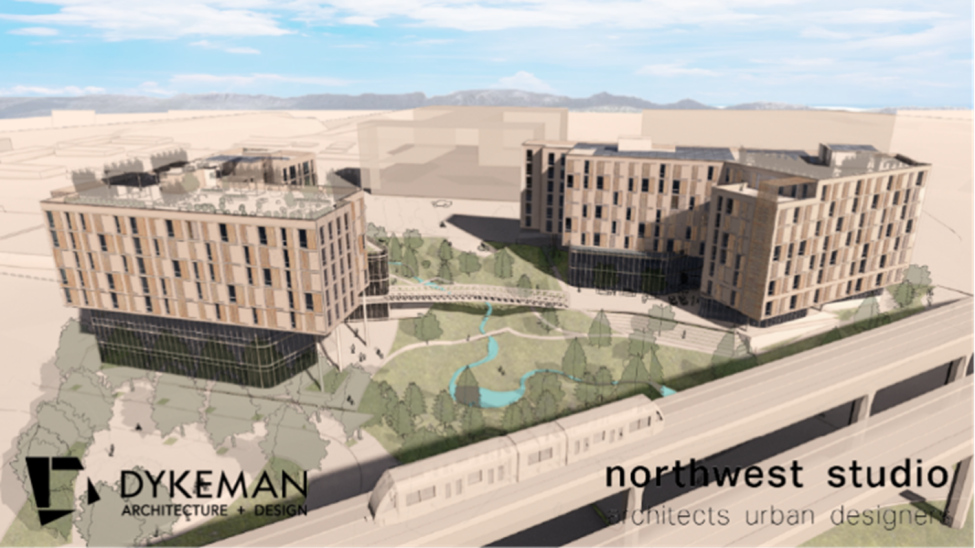On Aug. 30, the eagerly awaited Lynnwood Link Extension officially opened, adding four new stations— Shoreline South, Shoreline North, Mountlake Terrace, and Lynnwood City Center—to the 1 Line. This expansion gives people fast and reliable transit service between south Snohomish County and the existing Link system.
Beyond providing a great ride, Sound Transit is committed to promoting regional growth by supporting the development of livable communities near our stations. This work includes affordable housing set for development near the Lynnwood City Center Station.
About the TOD Project
The proposed development includes 167 affordable units for households earning between 30% and 60% of the area’s median income. Most units will be family-sized, with two or three bedrooms.
The Community Health Center of Snohomish County and the Center for Human Services will provide medical, dental, and behavioral health services. The proposed development also includes Tomorrow’s Hope Child Development Center, a childcare facility that Housing Hope will operate. In collaboration with the behavioral facility, a trauma-informed pediatric care facility will support youth who have experienced poverty and homelessness. Kindred Kitchen, a public café and job-training center, will have a new location on-site. Regardless of ability to pay, insurance status, and citizenship, these services will all be available to residents and community members.
The development will restore the on-site stream to fish-passable standards, adding open green space and benefiting salmon. Residents and community members will have access to walking trails, community gardens, and more to engage with this outdoor space.
This TOD project supports a shared vision of a more vibrant, walkable, mixed-use, and mixed-income neighborhood near the new Lynnwood City Center Station.
Community-driven TOD outcomes
Sound Transit collected public input for the Lynnwood City Center TOD site from fall 2021 to winter 2022. Engagement occurred in two phases, with outreach methods including online surveys and open houses, social media posts, mailers, and conversations with community-based organizations.
The community shared the following priorities with us:
- Housing development that considers people with low incomes.
- Programs for people who need shelter, childcare, and social services.
- Natural features and passive open space for walking and sitting.
- Public access to non-residential spaces, including retail and food services, community centers, arts and cultural space, and multi-use workspaces.
The community engagement report is available here.
The feedback contributed to our goals for the development, including affordable housing, stream restoration, ground-floor commercial use, family-sized units, community-oriented services, and more.
Interested in learning more about Sound Transit’s TOD program? Check out our webpage for more information about our role supporting TOD projects throughout the region.

